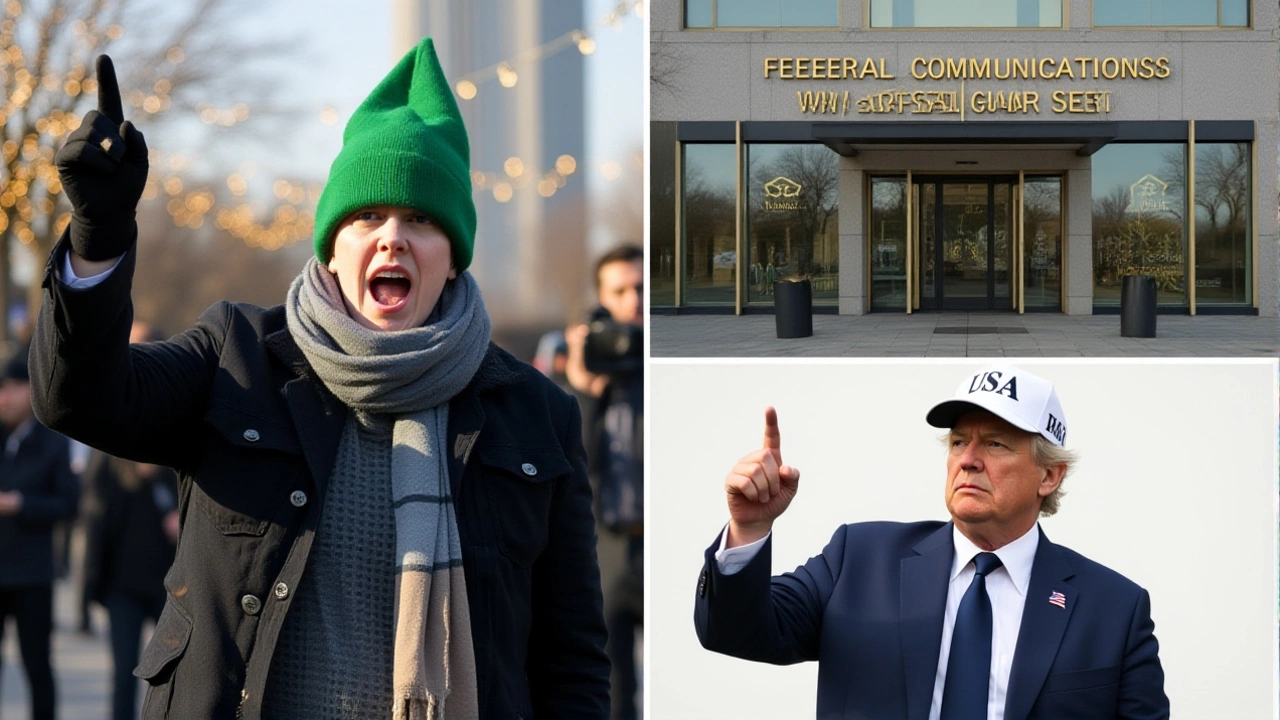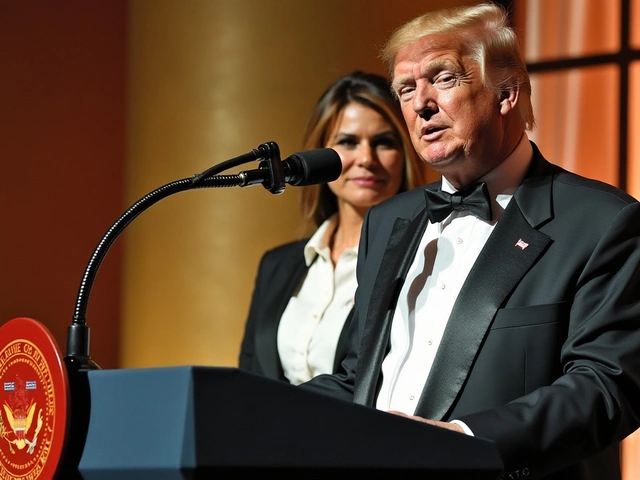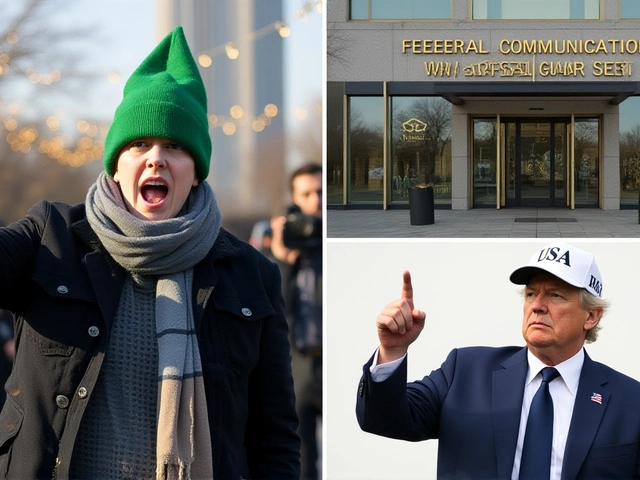When Nathan Simington, a former FCC Commissioner of the Federal Communications Commission announced his abrupt resignation on June 5, 2025, he quickly made clear who he wanted to see seated in his vacated slot. In a candid interview with the New York Post on June 7, he said he would be "delighted" to see his 31‑year‑old chief of staff, Gavin Wax, nominated to the open FCC commissioner seat.
Background on Simington’s Tenure
Simington, a Republican appointed by Donald Trump during his first term, entered the commission in 2020 after a surprise selection that even he described as "not on anybody's short list." His five‑year stint was marked by a steady, if unspectacular, push for deregulation of broadband rules and a focus on expanding rural service. When asked whether his own appointment had been a product of political opportunism, Simington admitted, "Sometimes the president has amazing ideas that don’t fit the usual Beltway playbook."
Wax’s Rapid Rise and Controversy
Wax joined Simington’s office in late April 2025 as a senior advisor, having spent most of his career in partisan politics. Before that, he led the New York Young Republican Club and worked as a campaign aide for several Trump‑aligned candidates. In barely two months, he moved from the hallway of the FCC’s 45 L Street NE headquarters to the senior staff badge, a trajectory that drew eyebrows from both regulators and watchdog groups.
Critics were quick to label Wax an "unqualified right‑wing zealot." Citizens for Ethics published a report suggesting Wax may have breached the Hatch Act by engaging in overtly partisan activity while on agency time. The report cited three instances where Wax allegedly used official FCC email accounts to solicit support for Trump‑aligned donors. Though a recent policy change limits enforcement against former employees, the allegations, according to ethics experts, "should preclude his nomination to the role of Commissioner."
Despite the pushback, Simington remained steadfast. "I’ve had a fairly successful term," he said, "and I think the president’s creativity in picking outsiders could be a good thing for the commission."
Other Candidates and Political Calculus
Simington’s endorsement did not happen in a vacuum. Inside the GOP, several names were floating for the seat:
- Adam Candeub – FCC General Counsel, touted by Chairman Brendan Carr as a natural successor.
- Robin Colwell – Deputy Director of the National Economic Council.
- Adam Cassady – Deputy Administrator of the National Telecommunications and Information Administration (NTIA).
- Arielle Roth – Nominee for NTIA Administrator.
The slate reflected a classic split: career telecom regulators versus political operatives. While Carr pushed Candeub, Simington’s public push for Wax signaled an attempt to tilt the balance toward a more ideologically driven nominee.
Senate Moves and Quorum Concerns
Complicating the drama, the Senate had already confirmed Olivia Trusty as the other Republican commissioner in June 2025. Trusty’s confirmation restored the required three‑member quorum for the FCC, but Simington’s seat remained empty, leaving the agency with a fragile 2‑1 partisan split.
Inside sources told Inside Towers that senators were debating whether to expedite Trusty’s vote before the commission’s June 26 meeting. The goal: ensure a quorum for a crucial vote on the upcoming broadband modernization rule. As the debate unfolded, Simington’s endorsement of Wax added a new variable, prompting some lawmakers to ask, "Do we want a commissioner with two months of telecom experience?"

Wax’s Shift to the State Department
By late August, the buzz around Wax’s potential nomination had faded. On August 26, 2025, Wax announced via LinkedIn that he was moving to the State Department as chief of staff for acting Undersecretary of State for Public Diplomacy and Public Affairs Darren Beattie. In his post, Wax wrote that his new role would involve "shaping global perceptions of U.S. policies and values through strategic communication efforts." The announcement was accompanied by a joint interview with The Blaze’s Glenn Beck, further underscoring Wax’s continuing alignment with the Trump‑era media ecosystem.
Former White House strategist Steve Bannon had publicly backed Wax’s FCC bid earlier in the summer, calling him "the fresh‑blood the commission needs." With Wax’s departure, that particular endorsement lost immediate relevance, but it highlighted how deeply intertwined the nomination fight was with broader right‑wing networking.
Despite Wax’s exit, Simington’s seat remained vacant through the end of 2025, a lingering reminder that the commission’s composition could still shift dramatically depending on the president’s next pick.
What This Means for FCC Policy
The episode underscores a larger trend: presidents increasingly favor political outsiders over seasoned regulators when filling FCC seats. If a future nominee follows Wax’s playbook—short tenure, strong partisan ties, and a background in political campaigning—policy outcomes could tilt toward more aggressive deregulation, especially in areas like net neutrality and spectrum auctions.
For consumers, the stakes are concrete. A commissioner with limited technical knowledge may rely heavily on industry lobbyists, potentially weakening consumer protections. Conversely, a politically savvy nominee could accelerate projects that the administration deems essential for national security, such as expanding 5G in rural America.
Analysts at Techdirt warn that the "right‑wing zealot" label, while colorful, masks a real risk: the FCC could become a venue for partisan messaging rather than a technocratic regulator. The next presidential pick—whenever that occurs—will either reinforce that trajectory or steer the commission back toward a more balanced, expertise‑driven approach.
Frequently Asked Questions
How does Simington’s endorsement affect the chances of Gavin Wax becoming an FCC commissioner?
Simington’s public support adds a veneer of insider credibility, but Wax’s lack of telecom experience and Hatch Act allegations still make his nomination unlikely. The president ultimately decides, and recent Senate moves suggest a preference for more seasoned candidates.
Who are the other leading candidates for the vacant Republican seat?
The most discussed alternatives include FCC General Counsel Adam Candeub, NEC Deputy Director Robin Colwell, NTIA Deputy Administrator Adam Cassady, and NTIA Administrator nominee Arielle Roth. All have deeper policy backgrounds than Wax.
What impact could a politically‑driven commissioner have on FCC rules?
A commissioner chosen primarily for partisan loyalty may prioritize deregulatory agendas, potentially rolling back net‑neutrality safeguards and accelerating spectrum releases that favor industry over consumer protections.
Why did Gavin Wax leave the FCC for the State Department?
Wax’s move, announced on August 26, 2025, aligned with his background in political communications. The State Department role offered a broader platform for public diplomacy and kept him within the Trump‑aligned media circuit.
What does the vacancy mean for the FCC’s ability to vote on key policies?
With only three commissioners (two Democrats, one Republican) and one seat empty, the commission can still reach a quorum but lacks the bipartisan balance that often tempers major rulings. Future policy decisions may swing more sharply depending on the next appointment.





